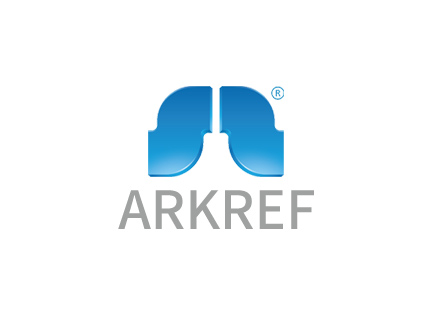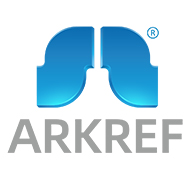Discovering Innovation: Interactive Insights into ARKREF CO₂ Transcritical Refrigeration

Exploring the Basics of ARKREF CO₂ Transcritical Refrigeration
Transcritical refrigeration is a cutting-edge technology that has revolutionized the cooling industry. Unlike traditional refrigeration systems, transcritical refrigeration utilizes CO₂ as the primary refrigerant. This innovative approach offers a sustainable and eco-friendly solution for various cooling applications.
What is Transcritical Refrigeration?
The Role of CO₂ in Refrigeration
Transcritical refrigeration harnesses the unique properties of CO₂ to facilitate the heat transfer process. As a natural refrigerant, CO₂ effectively absorbs and releases heat during the cooling cycle, making it an ideal choice for environmentally conscious refrigeration solutions.
How Transcritical Cycle Differs from Traditional Systems
Unlike conventional systems that rely on synthetic refrigerants with high global warming potential (GWP), transcritical refrigeration operates at supercritical pressures, allowing CO₂ to transition between liquid and gas phases without the need for additional chemical additives. This distinction sets transcritical refrigeration apart from its traditional counterparts, offering a more sustainable and efficient cooling process.
Why ARKREF's Approach Matters
The Shift Towards Eco-Friendly Solutions
As environmental concerns continue to drive technological innovation, the demand for sustainable cooling solutions has surged. With stringent regulations aimed at reducing harmful emissions, ARKREF's transcritical CO2 systems are at the forefront of this green revolution, aligning with global efforts to mitigate climate change.
Meeting the Needs of Modern Refrigeration
The market landscape for cooling technologies is evolving rapidly, with an increasing emphasis on energy efficiency and environmental responsibility. ARKREF's approach addresses these contemporary demands by providing reliable and high-performance transcritical refrigeration units that cater to diverse industrial and commercial requirements.
In Europe, where F-Gas regulations mandate a significant reduction in HFC refrigerant usage by 2025, there has been a notable shift towards transcritical CO2 systems due to their low GWP and non-ozone depleting properties. Similarly, North America has witnessed a growing adoption of transcritical CO2 systems in various retail environments, driven by government initiatives promoting natural refrigerants like CO₂.
The efficiencies of transcritical CO2 cycles have been extensively studied over time, consistently demonstrating their cost-effectiveness and superior performance compared to traditional systems. These findings underscore the significance of embracing ARKREF's innovative approach in transitioning towards sustainable and eco-friendly refrigeration solutions.
Inside the ARKREF CO₂ Transcritical Refrigeration Unit
ARKREF's CO2 transcritical refrigeration unit comprises several key components that work in tandem to deliver efficient and sustainable cooling solutions. Understanding the intricacies of these components sheds light on the innovative technology driving ARKREF's refrigeration units.
Key Components of the Unit
Understanding the Bitzer Screw Compressor HSK/CSH
The heart of ARKREF's transcritical refrigeration unit lies in the Bitzer Screw Compressor HSK/CSH. This cutting-edge compressor is specifically designed to operate seamlessly with CO₂ as a refrigerant, ensuring optimal performance and reliability. The unique design of this compressor allows for precise control over pressure differentials, enabling efficient heat transfer and energy savings.
The Importance of R744 Refrigerant
At the core of ARKREF's transcritical refrigeration unit is the utilization of R744 refrigerant, more commonly known as CO₂. This natural refrigerant plays a pivotal role in facilitating environmentally friendly cooling processes. With its low environmental impact and zero ozone depletion potential, R744 is a sustainable alternative to traditional synthetic refrigerants, aligning with ARKREF's commitment to eco-conscious solutions.
How the Unit Operates
The Transcritical Cycle in Action
ARKREF's transcritical refrigeration unit operates on a transcritical cycle that harnesses the unique thermodynamic properties of CO₂. By operating above its critical point, CO₂ transitions between liquid and gas phases, effectively managing heat exchange processes for efficient cooling. This innovative approach ensures consistent performance across varying operational conditions, making it an ideal choice for diverse industrial and commercial applications.
Efficiency and Performance Metrics
Research and development efforts within the transcritical CO2 market have focused on refining efficiency metrics to enhance system performance. Studies have shown that modifications aimed at improving coefficient of performance (COP) can significantly impact energy savings. For instance, advancements such as utilizing a single vortex tube to replace traditional expansion valves have demonstrated notable improvements in COP, showcasing the potential for enhanced efficiency in ARKREF's transcritical refrigeration units.
The continuous advancements in compressor technologies, heat exchangers, and system controls tailored to CO₂'s unique properties underscore ARKREF's dedication to optimizing efficiency and reliability within their transcritical refrigeration units.
The Environmental and Operational Benefits of ARKREF CO₂ Transcritical Technology
Reducing Carbon Footprint with ARKREF
Transcritical technology, utilizing CO₂ as a green refrigerant, plays a pivotal role in reducing the carbon footprint associated with traditional refrigeration systems. By transitioning to transcritical CO2 systems, businesses can significantly minimize their environmental impact while embracing sustainable cooling solutions. The utilization of CO₂ as a natural refrigerant aligns with global efforts to mitigate climate change and reduce greenhouse gas emissions.
The Role of CO₂ as a Green Refrigerant
The adoption of CO₂ as a green refrigerant offers substantial environmental benefits for businesses. Unlike synthetic refrigerants with high global warming potential, CO₂ contributes minimally to atmospheric pollution and ozone depletion. This eco-conscious approach not only reduces the direct environmental impact of cooling operations but also aligns with regulatory standards aimed at promoting sustainable practices within the industry.
Long-term Environmental Impact
Businesses that integrate ARKREF's transcritical technology experience long-term environmental advantages. The reduced reliance on synthetic refrigerants translates to sustained environmental preservation, contributing to overall ecosystem health and climate stability. As transcritical CO2 systems become more prevalent in various industries, the cumulative effect of decreased carbon emissions fosters a greener and more sustainable future for generations to come.
Operational Advantages for Businesses
ARKREF's transcritical technology extends beyond environmental benefits, offering operational advantages that enhance business efficiency and profitability.
Energy Efficiency and Cost Savings
Studies have consistently demonstrated substantial energy savings and improved profitability for businesses implementing transcritical CO2 systems. By leveraging the inherent properties of CO₂ as a natural refrigerant, businesses can achieve enhanced energy efficiency, resulting in reduced operational costs and increased profitability. Furthermore, the long-term cost savings associated with lower energy consumption contribute to improved financial sustainability for businesses across diverse sectors.
Safety and Reliability in Refrigeration
In addition to energy efficiency, transcritical CO2 systems prioritize safety and reliability in refrigeration operations. Compared to traditional systems utilizing synthetic refrigerants, transcritical technology offers enhanced safety measures and operational reliability. With minimized risks associated with chemical additives and superior system performance under varying conditions, businesses can ensure consistent cooling processes while prioritizing employee safety and operational continuity.
The integration of ARKREF's transcritical technology not only elevates environmental stewardship but also empowers businesses with cost-effective, efficient, and safe refrigeration solutions tailored to meet modern operational demands.
Wrapping Up: Understanding ARKREF's Role in Green Refrigeration
The Future of Refrigeration Technology
Innovations on the Horizon
The future of refrigeration technology is poised for significant advancements, with transcritical CO2 systems at the forefront of sustainable cooling solutions. As demand for eco-friendly and efficient refrigeration escalates, ongoing research and development efforts are driving innovations that optimize the performance and environmental impact of these systems. The integration of advanced technologies, such as enhanced heat exchangers and precision control mechanisms, underscores the continuous evolution of transcritical CO2 units, ensuring their relevance in a rapidly changing market landscape.
ARKREF's Commitment to Sustainability
ARKREF's unwavering commitment to sustainability extends beyond product innovation to encompass comprehensive environmental stewardship. By prioritizing the development and deployment of transcritical CO2 refrigeration units, ARKREF actively contributes to global initiatives aimed at reducing greenhouse gas emissions and promoting energy-efficient solutions. Through strategic partnerships and investment in sustainable practices, ARKREF remains dedicated to shaping a greener future for refrigeration technology.
Why ARKREF's Transcritical Units Are a Game-Changer
Bridging the Gap Between Technology and Ecology
ARKREF's transcritical units serve as a bridge between cutting-edge technology and ecological responsibility. By harnessing the inherent benefits of CO₂ as a natural refrigerant, these units offer a seamless integration of advanced cooling capabilities with minimal environmental impact. This harmonious balance between technological innovation and ecological consciousness positions ARKREF as a pivotal player in driving sustainable practices within the refrigeration industry.
Empowering Businesses to Make Eco-Friendly Choices
The widespread adoption of ARKREF's transcritical units empowers businesses across diverse sectors to embrace eco-friendly refrigeration solutions without compromising operational efficiency. With substantial energy savings, reduced environmental footprint, and enhanced safety measures, these units enable businesses to make informed choices that align with global sustainability goals while optimizing their bottom line.
See Also
Introducing the ARKREF CO₂ Transcritical Refrigeration Unit Case Study
Comprehensive Overview of the ARKREF CO₂ Transcritical Refrigeration Unit
Improving Industrial Cooling Using the ARKREF CO₂ Transcritical Refrigeration Unit
Introduction to Case Studies of the ARKREF CO₂ Transcritical Refrigeration Unit
Comprehending the ARKREF CO₂ Transcritical Refrigeration Unit

